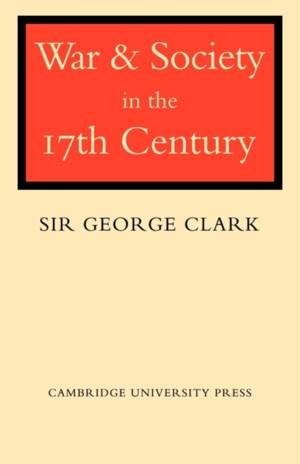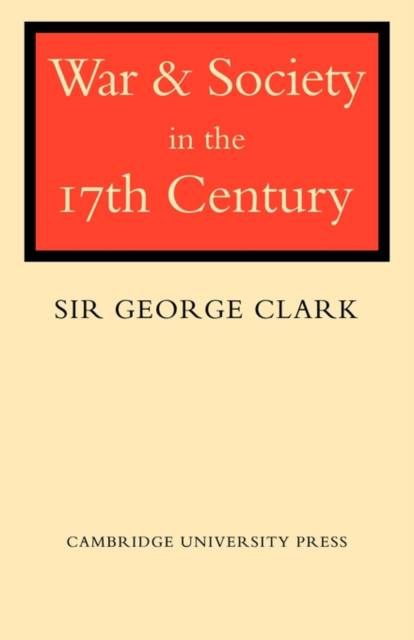
Bedankt voor het vertrouwen het afgelopen jaar! Om jou te bedanken bieden we GRATIS verzending (in België) aan op alles gedurende de hele maand januari.
- Afhalen na 1 uur in een winkel met voorraad
- In januari gratis thuislevering in België
- Ruim aanbod met 7 miljoen producten
Bedankt voor het vertrouwen het afgelopen jaar! Om jou te bedanken bieden we GRATIS verzending (in België) aan op alles gedurende de hele maand januari.
- Afhalen na 1 uur in een winkel met voorraad
- In januari gratis thuislevering in België
- Ruim aanbod met 7 miljoen producten
Zoeken
€ 64,95
+ 129 punten
Omschrijving
Sir George Clark discusses war as a factor for good and ill in European society in the seventeenth century. In particular, he shows how war helped to determine the emergence of modern Europe from a society geographically, politically and doctrinally confused: what Sir George calls the mêlée of the early part of the century. His first chapter stresses that war was accepted as part of the order of society. It was considered a legitimate instrument of policy, provided that it was just. The next chapter examines 'War as a Collision of Societies' and analyses the effect on war of religious issues, questions of manpower, supply and the relationship between trade and national policy (including some important remarks on the alleged nature of mercantilism). 'War in the European Community' examines the possibility of more civilised reactions to war - especially to atrocities. The final chapters deal with particular aspects: the depredations of the Barbary Corsairs on the trade of civilised Europe and the views held in the seventeenth century on the cycle of war and peace.
Specificaties
Betrokkenen
- Auteur(s):
- Uitgeverij:
Inhoud
- Aantal bladzijden:
- 168
- Taal:
- Engels
- Reeks:
Eigenschappen
- Productcode (EAN):
- 9780521135825
- Verschijningsdatum:
- 30/07/2009
- Uitvoering:
- Paperback
- Formaat:
- Trade paperback (VS)
- Afmetingen:
- 140 mm x 216 mm
- Gewicht:
- 217 g

Alleen bij Standaard Boekhandel
+ 129 punten op je klantenkaart van Standaard Boekhandel
Beoordelingen
We publiceren alleen reviews die voldoen aan de voorwaarden voor reviews. Bekijk onze voorwaarden voor reviews.









